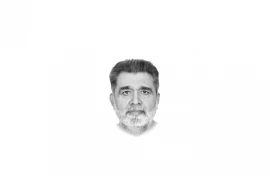1733984559-0/Copy-of-Untitled-(30)1733984559-0.png)
The UN General Assembly has voted overwhelmingly in favour of a resolution calling for an immediate humanitarian ceasefire in Gaza.
The resolution passed on Wednesday was introduced by Egypt.
The non-binding resolution passed with 158 votes in favour in the 193-member assembly.
This demand for a ceasefire was expressed in more urgent terms than similar calls made in previous months. The UN had previously called for a humanitarian truce in Gaza in October 2023 and later demanded a ceasefire in December 2023.
Osama Abdelkhalek, Egypt's ambassador to the UN, emphasised that the resolution was "the only guarantee for saving innocent civilians" and criticised what he described as "despicable" double standards surrounding Palestinian issues.
He specifically pointed to a minority of countries that opposed the resolution, citing Israel’s right to defend itself as a key reason for their stance.
While General Assembly resolutions are not legally binding, they carry significant political weight and reflect global opinions on the conflict.
The US, Israel, and seven other countries voted against the resolution, while 13 countries abstained.
Israel’s Ambassador to the UN, Gilad Erdan, argued that a ceasefire would benefit Hamas, stating that it would undermine efforts to neutralize the group.
In addition to the ceasefire resolution, the UN also passed a second resolution with 159 votes in favour, expressing support for the UN Palestinian relief agency (UNRWA).
This resolution condemned a new Israeli law set to ban UNRWA’s operations in Israel from late January 2025, urging Israel to respect the agency's mandate and allow its operations to proceed without obstruction.
The US, Israel, and seven other countries also voted against this resolution, while 11 countries abstained.
The Deputy U.S. Ambassador to the UN, Robert Wood, criticized both resolutions, arguing that they failed to address key issues such as the release of hostages and the need for humanitarian aid to Palestinians.
He stated that one resolution "rewards Hamas" and the other "denigrates Israel" without offering a clear path forward for increasing aid to Palestinian civilians.
Countries Voting No and Abstaining
Countries that voted against the resolutions included the United States, Israel, Austria, Czech Republic, Guatemala, Liberia, Micronesia, Nauru, Papua New Guinea, and Paraguay.
The countries that abstained from voting were Argentina, Bulgaria, Cabo Verde, Cameroon, Equatorial Guinea, Georgia, Germany, Hungary, Italy, Lithuania, Malawi, Marshall Islands, Netherlands, Palau, Panama, Romania, Slovakia, South Sudan, Togo, Tonga, Ukraine, United Kingdom, and Uruguay.
Shifting Positions and Support for the Resolution
In a notable shift, some US allies, including Canada, Australia, and Japan, which had previously abstained from similar votes, joined over 30 other countries in supporting the ceasefire resolution.
Several Asian countries, including India and South Korea, which had abstained in October, also voted in favor.
Countries in the Middle East and North Africa, including Muslim and Arab nations, which have been vocal in their condemnation of Israel’s military actions in Gaza, also supported the resolution.
South American nations, including Bolivia—who cut diplomatic ties with Israel over the conflict—along with Chile and Colombia, which recalled their ambassadors, also voted in favor. Pakistan and many other countries similarly backed the call for a ceasefire in Gaza.
1733994933-0/Untitled-(26)1733994933-0-405x300.webp)
1733992737-0/Untitled-(25)1733992737-0-165x106.webp)


1733989983-0/Untitled-(24)1733989983-0-165x106.webp)
1733993619-0/Untitled-design-(3)1733993619-0-270x192.webp)
1733992156-0/Copy-of-Untitled-(33)1733992156-0-270x192.webp)
1733988558-0/Copy-of-Untitled-(32)1733988558-0-270x192.webp)

1733984559-0/Copy-of-Untitled-(30)1733984559-0-270x192.webp)







COMMENTS
Comments are moderated and generally will be posted if they are on-topic and not abusive.
For more information, please see our Comments FAQ